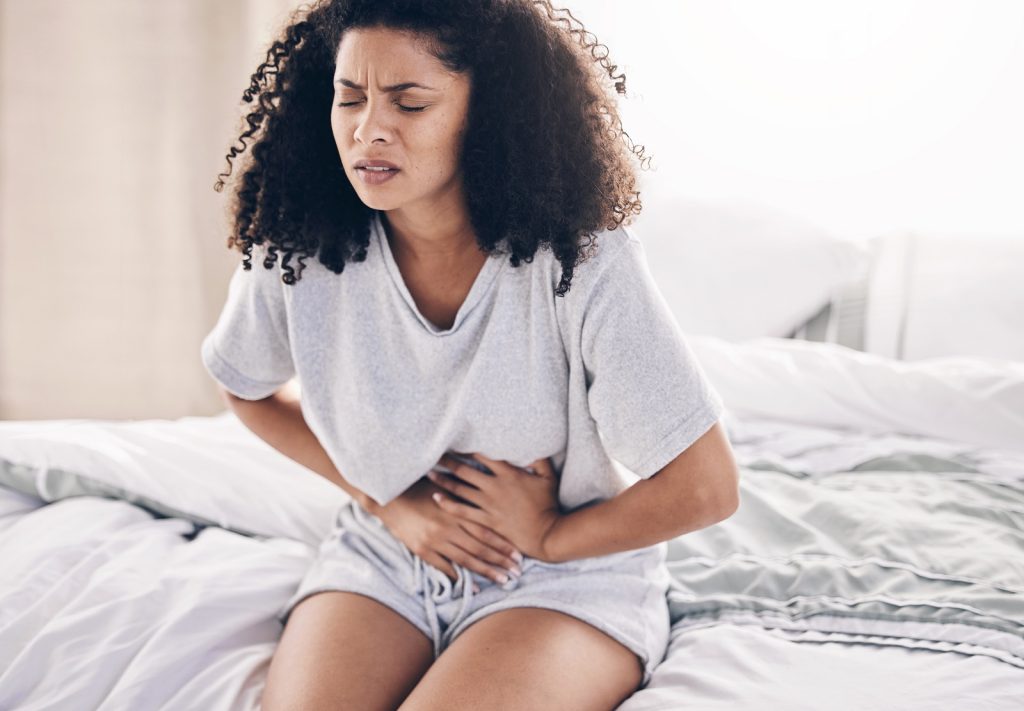Treatment of Perimenopausal Vaginal Dryness
Perimenopause can be a challenging time for many women. Not only are they dealing with the physical and emotional changes that come with menopause, but they’re also facing a host of uncomfortable symptoms that can be difficult to manage. One of the most common and frustrating symptoms of perimenopause is vaginal dryness.
When estrogen levels begin to decline, the vaginal tissues can become thin, dry, and less elastic, making sexual activity uncomfortable or even painful. But, there is hope. In this comprehensive guide, we’ll explore the causes of perimenopausal vaginal dryness and provide you with a range of treatment options to help alleviate your symptoms. From over-the-counter lubricants to hormone therapy, we’ll give you the information you need to make informed decisions about your health and well-being. So, if you’re tired of suffering in silence, it’s time to take back control and say goodbye to vaginal dryness for good.

Understanding perimenopausal vaginal dryness
Perimenopause is the transitional period that leads up to menopause, typically starting in a woman’s 40s. During this time, the body is going through significant hormonal changes, including a decrease in estrogen levels. Estrogen plays a crucial role in maintaining the health and elasticity of the vaginal tissues. When estrogen levels begin to decline, the vaginal tissues can become thin, dry, and less elastic, leading to perimenopausal vaginal dryness.
Perimenopausal vaginal dryness is a common symptom experienced by many women during this time. It can cause discomfort, pain, and even lead to a decrease in sexual desire. However, it’s essential to understand that vaginal dryness is a natural part of the aging process, and there are many treatment options available to help manage and alleviate your symptoms.
Causes of vaginal dryness during perimenopause
As previously mentioned, perimenopausal vaginal dryness is primarily caused by a decrease in estrogen levels. However, there are other factors that can contribute to vaginal dryness, including:
Medications
Certain medications can also contribute to vaginal dryness. These include antihistamines, antidepressants, and medications used to treat high blood pressure.
Lifestyle factors
Lifestyle factors, such as smoking, excessive alcohol consumption, and a poor diet, can also contribute to vaginal dryness.
Medical conditions
Certain medical conditions, such as Sjogren’s syndrome, an autoimmune disorder that affects the body’s moisture-producing glands, can also lead to vaginal dryness.
Signs and symptoms of perimenopausal vaginal dryness
The signs and symptoms of perimenopausal vaginal dryness can vary from woman to woman. Some may experience mild discomfort, while others may experience more severe symptoms, including:
- Dryness, itching or burning in the vaginal area
- Pain or discomfort during sexual intercourse
- Light bleeding after intercourse
- Recurring urinary tract infections
- Decreased sexual desire
If you’re experiencing any of these symptoms, it’s essential to talk to your healthcare provider about your options for treatment. Talking to your healthcare provider about vaginal dryness can be uncomfortable, but it’s essential to remember that they are there to help you. When discussing your symptoms, be as open and honest as possible. Your healthcare provider may recommend a physical exam to rule out other medical conditions that may be causing your symptoms.
It’s also essential to discuss your medical history and any medications you are currently taking. This can help your healthcare provider determine the best course of treatment for you.

Treatment options for perimenopausal vaginal dryness
There are many treatment options available for perimenopausal vaginal dryness. The right treatment for you will depend on your symptoms, medical history, and personal preferences. Let’s explore some of the most common treatment options below.
Over-the-counter solutions for vaginal dryness
Over-the-counter lubricants and moisturizers can help alleviate vaginal dryness. These products can be found at most drugstores and are available in different forms, including creams, gels, and suppositories.
When choosing an over-the-counter product, look for one that is free of fragrances and other irritants. Water-based products are typically the best option, as they are less likely to cause irritation.
Prescription treatments for vaginal dryness
If over-the-counter products are not providing relief, your healthcare provider may recommend a prescription treatment. Prescription treatments for vaginal dryness include estrogen creams, tablets, and rings. Estrogen can help restore moisture and elasticity to the vaginal tissues, reducing symptoms of dryness and discomfort. It’s essential to discuss the risks and benefits of estrogen therapy with your healthcare provider, as it may not be appropriate for everyone.
Hormone therapy for vaginal dryness
Hormone therapy involves taking estrogen and, in some cases, progesterone to help alleviate perimenopausal symptoms, including vaginal dryness. Hormone therapy can be administered through pills, patches, or creams.
It’s important to discuss the risks and benefits of hormone therapy with your healthcare provider, as it may increase the risk of certain health conditions, including breast cancer.
Lifestyle changes to alleviate vaginal dryness
Making certain lifestyle changes can also help alleviate vaginal dryness. These include:
- Quitting smoking
- Reducing alcohol consumption
- Eating a healthy, balanced diet
- Staying hydrated
- Practicing safe sex
Perimenopausal vaginal dryness can be a frustrating and uncomfortable symptom, but it’s essential to remember that there are many treatment options available to help manage and alleviate your symptoms. Whether you choose an over-the-counter product, prescription medication, or hormone therapy, it’s essential to discuss your options with your healthcare provider.
In addition to seeking treatment, staying proactive about your vaginal health is essential. Practicing safe sex, staying hydrated, and making healthy lifestyle choices can all help keep your vaginal tissues healthy and elastic.
Remember, perimenopausal vaginal dryness is a natural part of the aging process, and you’re not alone. With the right treatment and self-care, you can say goodbye to vaginal dryness and enjoy a happy, healthy, and fulfilling sex life.